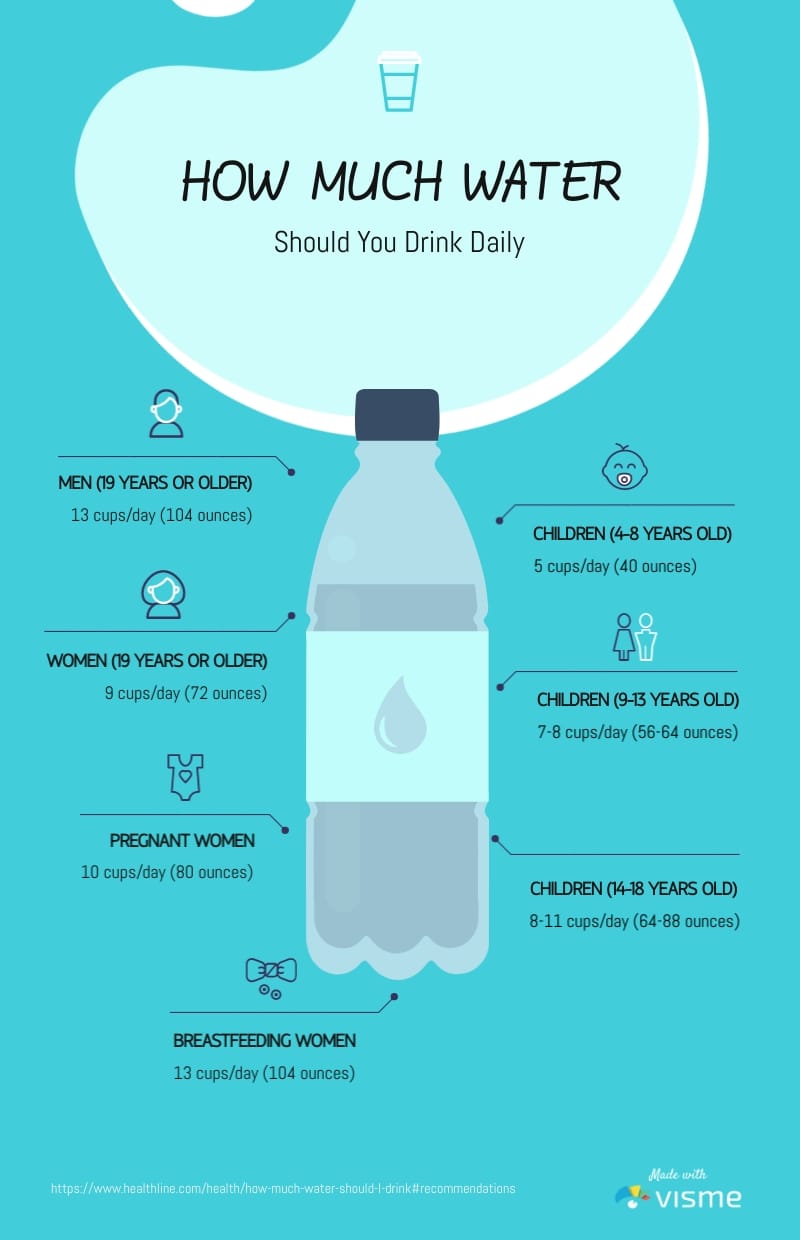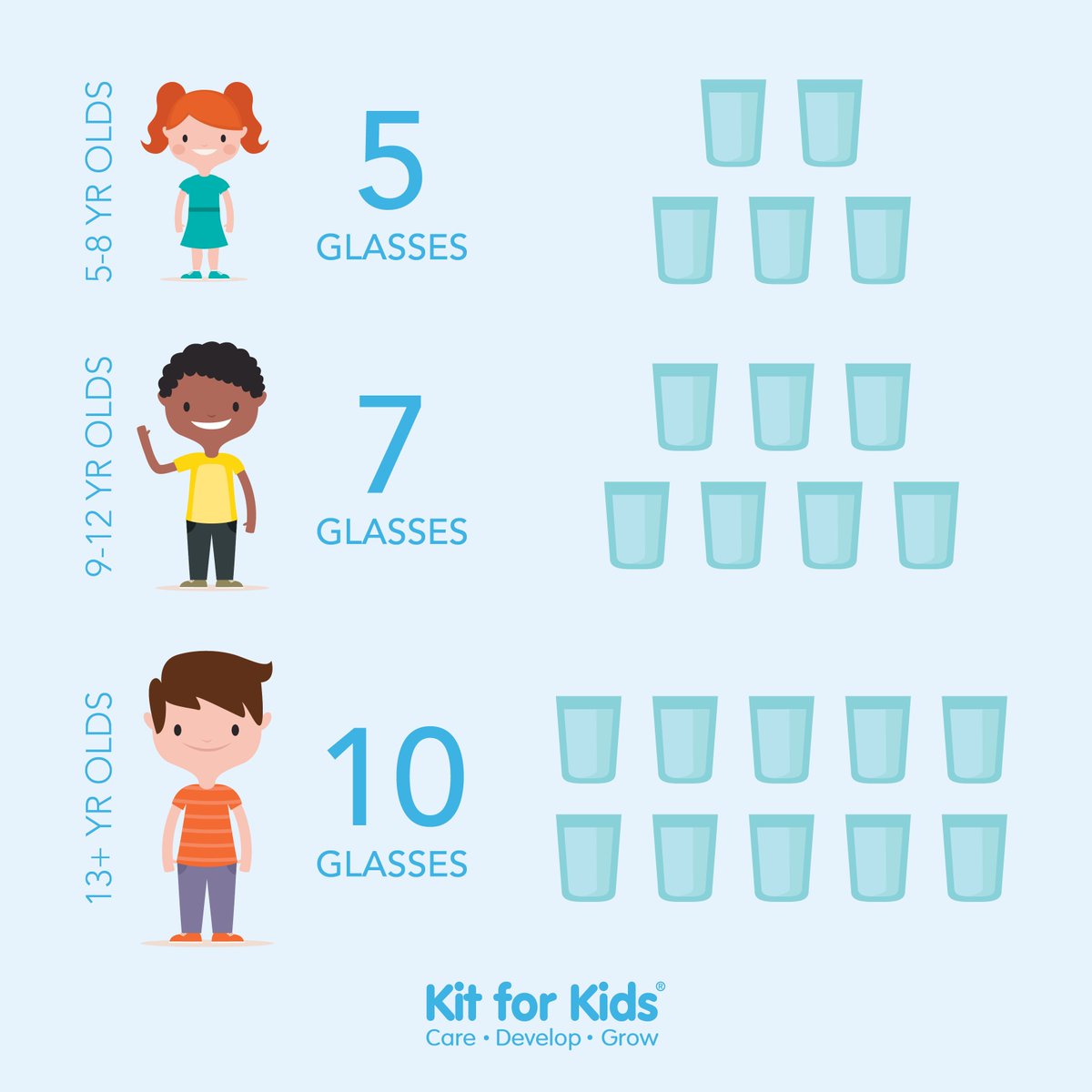How Much Bottles Of Water Should I Drink A Day

Staying properly hydrated is essential for maintaining optimal health and ensuring our bodies function at their best. Water is the most natural and beneficial beverage for our bodies, but how much water should we drink each day? The age-old adage of "eight 8-ounce glasses of water per day" is a common recommendation, but is it the right amount for everyone? Let's delve into the science and expert opinions to uncover the ideal water intake for daily hydration.
Understanding the Importance of Hydration

Water plays a crucial role in various bodily functions. It aids in digestion, nutrient absorption, temperature regulation, joint lubrication, and the elimination of waste products. Adequate hydration is vital for physical performance, cognitive function, and overall well-being. However, the question remains: how many bottles of water should we consume daily to achieve optimal hydration?
Factors Influencing Daily Water Intake

The amount of water each individual requires can vary significantly due to several factors. These include:
- Body Weight and Size: Larger individuals generally require more water than those with smaller frames.
- Activity Level: Physically active individuals or those engaging in intense workouts need to replace the fluids lost through sweating.
- Climate and Environment: Hot and humid conditions can increase water loss through perspiration.
- Dietary Habits: A diet rich in fruits and vegetables provides some hydration, but water remains essential.
- Health Status: Certain medical conditions or medications may impact fluid needs.
Recommended Daily Water Intake
The National Academies of Sciences, Engineering, and Medicine in the United States suggest an adequate daily fluid intake of:
- Men: Approximately 15.5 cups (3.7 liters) of fluids.
- Women: Approximately 11.5 cups (2.7 liters) of fluids.
These recommendations cover fluids from both beverages and food. While water is the primary source, other drinks like herbal tea, coffee, and fruit juices can contribute to overall fluid intake. Even foods with high water content, such as watermelon and cucumbers, provide some hydration.
The Role of Bottled Water
When it comes to bottled water, the convenience and portability it offers make it a popular choice for many. Here are some key considerations:
- Bottle Sizes: Bottled water typically comes in various sizes, ranging from 8-ounce to 1-liter bottles. The choice depends on personal preference and convenience.
- Environmental Impact: Opting for reusable water bottles can reduce plastic waste and be more environmentally friendly.
- Cost: Bottled water can be more expensive than tap water, so budget-conscious individuals might prefer refillable bottles.
Determining Your Optimal Water Intake
While the above recommendations provide a general guideline, it's essential to listen to your body and adjust your water intake accordingly. Here are some signs that you might need to increase your water consumption:
- Thirst: Feeling thirsty is the body's natural signal that it needs more water.
- Dark Urine: Urine should be light yellow or colorless. Dark urine indicates dehydration.
- Fatigue and Headaches: Dehydration can cause fatigue, dizziness, and headaches.
- Dry Mouth and Skin: Adequate hydration helps maintain moisture in the mouth and skin.
Tips for Increasing Water Intake
If you find it challenging to drink enough water, consider these strategies:
- Carry a reusable water bottle with you throughout the day.
- Set reminders or use apps to track your water intake.
- Infuse water with fruits or herbs for added flavor.
- Drink water before, during, and after physical activity.
- Choose water instead of sugary drinks when eating out.
The Benefits of Proper Hydration

Maintaining optimal hydration offers numerous health benefits, including:
- Improved Physical Performance: Proper hydration enhances endurance and reduces muscle fatigue.
- Better Cognitive Function: Studies suggest that even mild dehydration can impair cognitive performance.
- Healthy Skin: Adequate hydration can improve skin elasticity and reduce the appearance of wrinkles.
- Kidney Health: Drinking enough water supports kidney function and helps prevent kidney stones.
- Digestive Health: Water aids in digestion and prevents constipation.
Special Considerations
While staying hydrated is generally beneficial, there are a few instances where water intake should be monitored:
- Medical Conditions: Certain conditions like heart or kidney problems may require fluid restrictions. Consult your healthcare provider for personalized advice.
- Pregnancy and Breastfeeding: Additional fluid intake is necessary during these stages to support the body's increased needs.
Conclusion
Determining the exact number of water bottles to drink each day can vary based on individual factors. The recommended daily fluid intake provides a general guideline, but listening to your body's signals and adjusting your water consumption accordingly is essential. Staying properly hydrated offers numerous health benefits and is a simple yet effective way to support overall well-being.
Frequently Asked Questions
Can I rely solely on thirst to determine my water needs?
+
Thirst is a reliable indicator, but it’s not always the best guide. By the time you feel thirsty, you might already be mildly dehydrated. It’s best to drink water regularly throughout the day to stay ahead of thirst.
Are there any health risks associated with drinking too much water?
+
While rare, drinking excessive amounts of water can lead to a condition called hyponatremia, where the sodium levels in the blood become diluted. This can cause symptoms like nausea, headaches, and in severe cases, coma. However, this typically occurs in extreme circumstances, such as during endurance events or with certain medical conditions.
Can I count other beverages towards my daily fluid intake?
+
Yes, beverages like herbal tea, coffee, and fruit juices contribute to your daily fluid intake. However, it’s important to note that caffeinated and alcoholic beverages can have a diuretic effect, causing you to urinate more frequently. So, while they provide fluids, they might not contribute as significantly to hydration as plain water.



